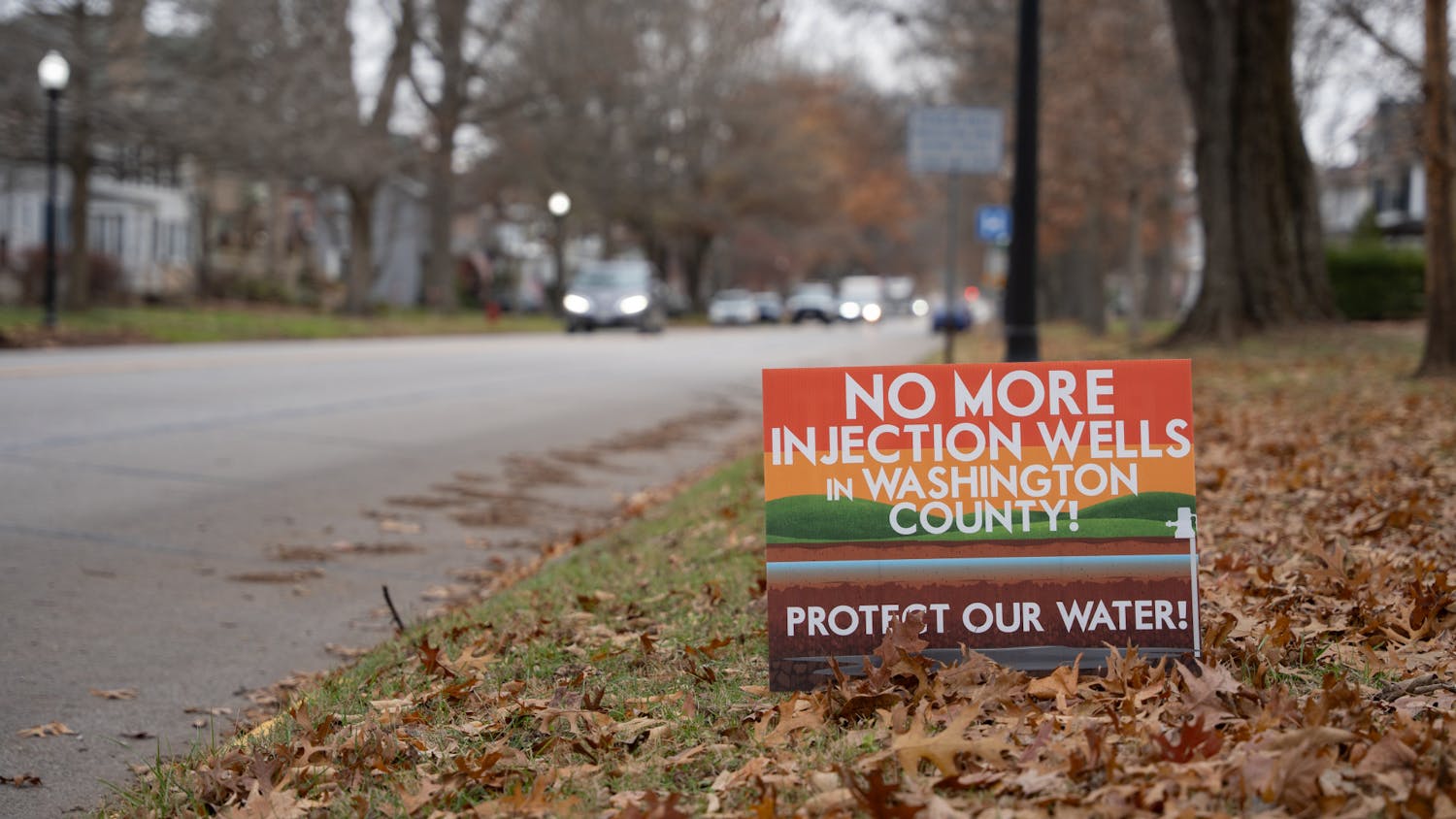Safety and lighting concerns on campus can potentially conflict with concerns over light pollution and environmental harm. Athens city officials and Ohio University staff currently work to balance these factors in decision-making about lighting on and off campus.
There are specific codes that reference lighting requirements and light pollution, City Planner Meghan Jennings said.
One subsection of the Athens City Code states that adequate lighting needs to be placed along streets where the city planning commissions see fit while adhering to light pollution standards, including appropriate lamps and reflectors to minimize light pollution. Another subsection gives guidelines on technical requirements to reduce light pollution, including restrictions on light glare and how much illumination can be permitted.
Andrew Stone, service-safety director, said the city’s main concern is the quality of life for residents. Light pollution is minimized, in part, so that Athens residents can see the stars at night and not be kept awake by light glare coming from other properties. Stone said the city receives more complaints about areas being too dark than about light pollution issues. However, the city has to abide by and enforce these city light laws. The laws also determine where lights can be placed.
Light trespass is also a concern for the city, Jennings said. Light trespass is when lighting from one property makes its way onto another without permission from residents. With ongoing construction projects on East State Street, the city has received several complaints about LED lights, Jennings said.
Ohio University also regulates lighting for construction projects on its property using Green Building Standards, Ohio University Office of Sustainability Director and City Council President Sam Crowl said.
“All the projects that happen on campus, anytime somebody wants to put in outdoor lighting, then they need to follow the Green Building Standards that minimize night sky light pollution,” Crowl said.
Safety concerns with a lack of lighting do indeed arise for students. Reagan Farmer, Student Senate treasurer and a junior studying political science, said she has heard from numerous people that there are concerns about spots on campus with dim lighting. Specifically, Farmer said the space behind Nelson Dining Hall and the walk to River Park are places she has heard have dim lighting.
Farmer also said that in the past, Senate executives have gone on safety walks with administrators to scope out potentially dangerous areas with little to no lighting. Those walks have since stopped, but Farmer said the Senate hopes to implement them again.
Light pollution, while still a priority for the university and the city of Athens, is not a major concern compared to other sustainability endeavors. Crowl said the Night Sky Initiative is something the Office of Sustainability maintains so that the university is adhering to light pollution standards while keeping campus property safe.
Crowl also said the city focuses on the Night Sky Initiative. He said the university works in tandem with the city of Athens to ensure both have stayed within light pollution standards, allowing for the potential of increased tourism.
There are Athens outdoor tours on the Ridges, which look at the observatory, he said.
“I actually am a big fan of looking at the night sky and I know that the physics professors and the astronomy professors who have for the past about 20 years been working very hard both to get those ordinances in the city of Athens as well as in the design standards are doing so because that observatory is so cool … because of the lack of light pollution, it’s a great place to really see what's going on in the stars,” Crowl said.
However, Jennings said the Athens Sustainability Action Plan focuses heavily on recycling and other environmental issues over light pollution. The city also works to identify parts of Athens that need better lighting, like the West Side neighborhood, she said.
Safety should always be the number one priority for students, Farmer said.
“If we can make people feel a little more secure, and safe, then that’s probably worth the other consequences that might occur,” Farmer said. “But I certainly would have to have more conversations with the people that have those concerns about light pollution to learn a little bit more about the topic.”
Stone said the city faces a major challenge in balancing light pollution and safety concerns.
“The challenge for public safety officials … is you're balancing public safety with light pollution,” Stone said. “Demands for more streetlights, demands for streetlights in new places that they don't exist, demands for better lighting at private property because of either real or perceived crime.”






